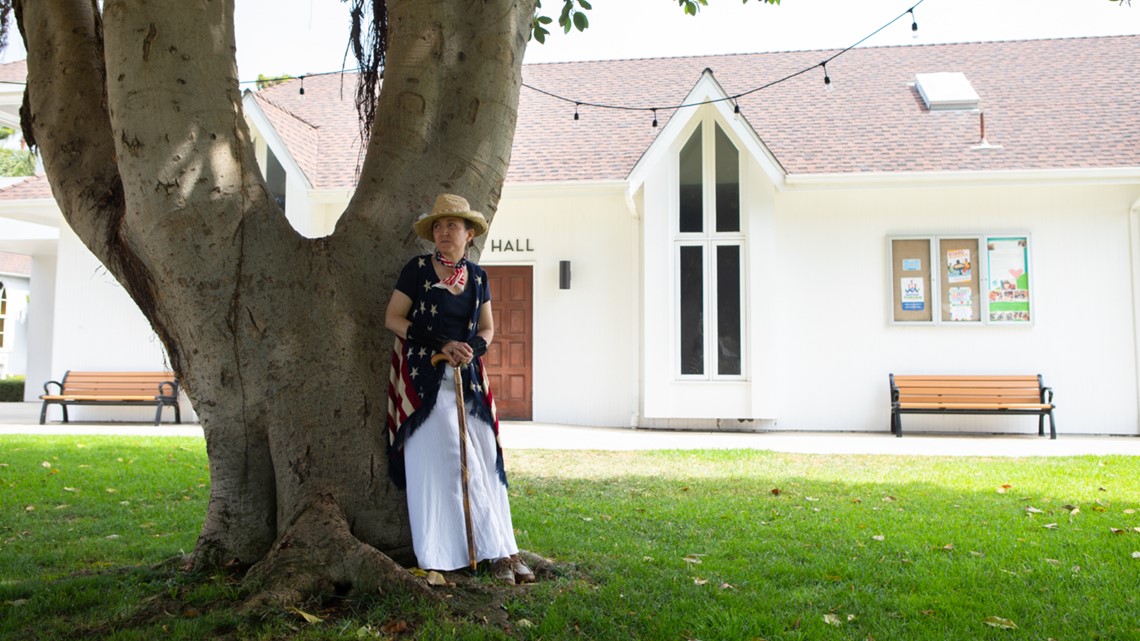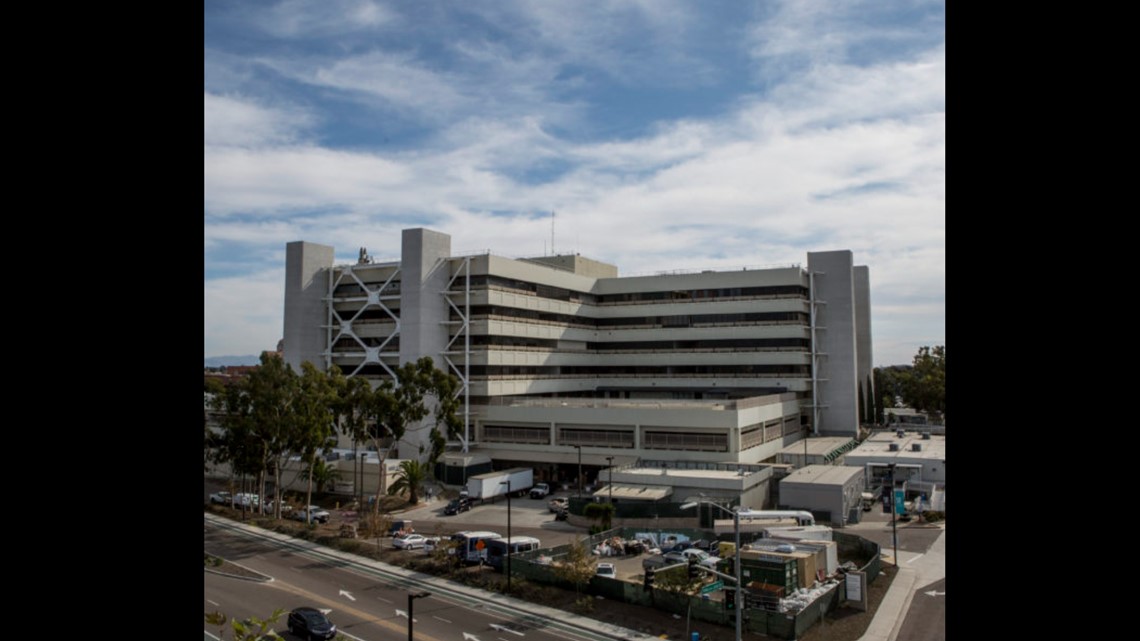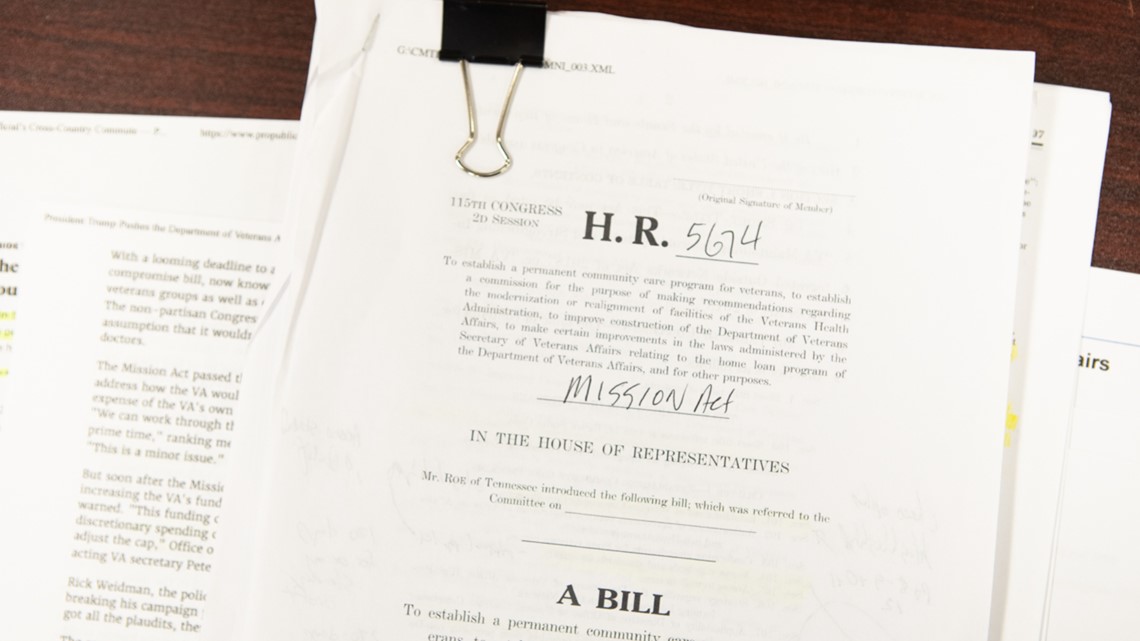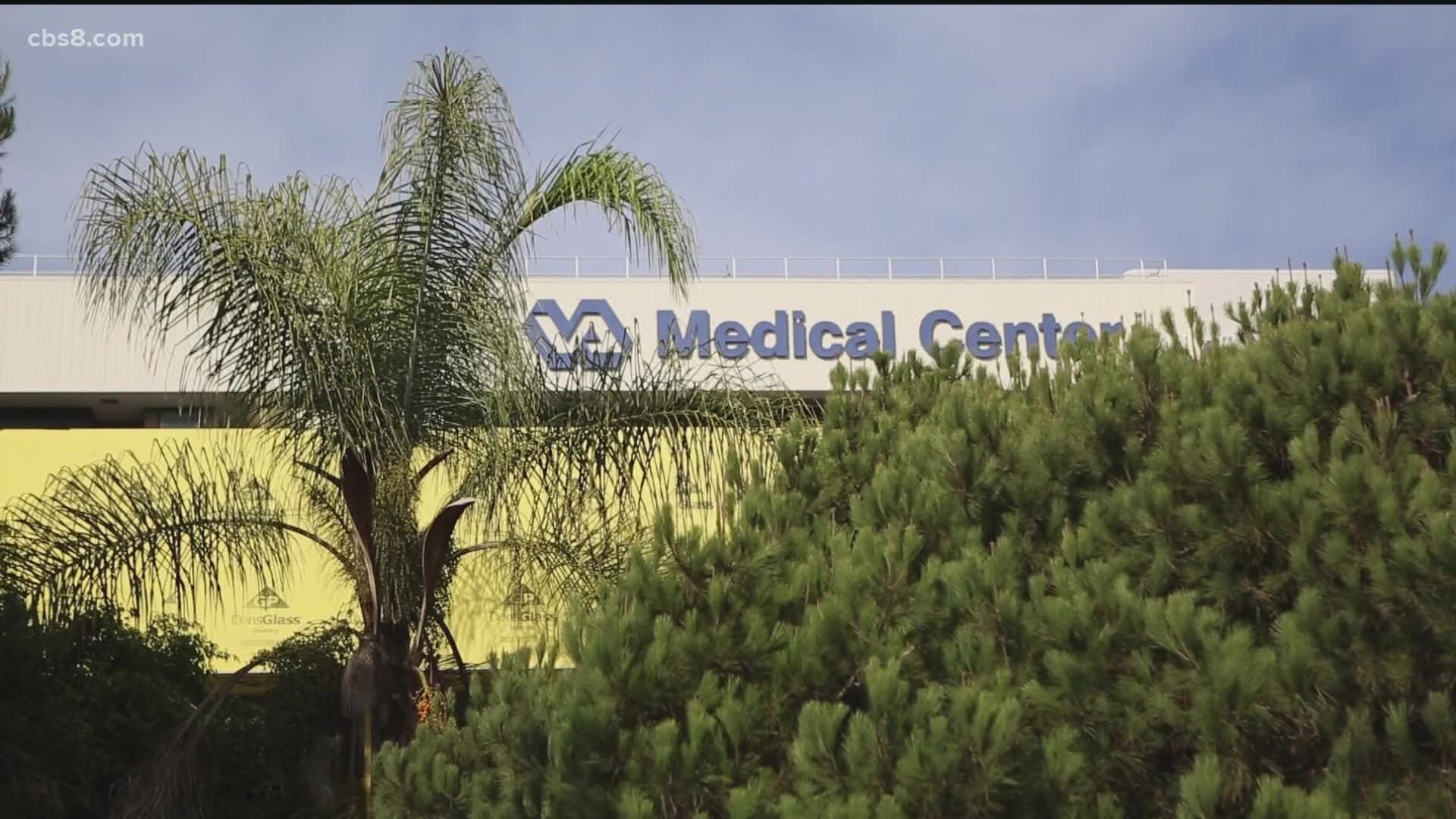SAN DIEGO COUNTY, Calif. — Members of Congress described inewsource’s investigation into the VA health care system as “troubling,” “alarming” and “unacceptable,” emphasizing that the issues raised by the reporting merit further congressional scrutiny.
“I am increasingly alarmed by the concerns I hear from veterans and from stories like this one,” said Rep. Mike Bost, R-IL, ranking member of the House Committee on Veterans’ Affairs. “They all point to one thing — VA not following the law and holding veterans hostage to a health care system that is not serving them.”
inewsource’s investigation, published in partnership with USA TODAY, chronicled the stories of veterans across Southern California who have been unable to access much-needed treatments outside the VA, a federally funded health care system for veterans.
One veteran, stage IV cancer patient Christine Russell, was suddenly told in February that the VA would no longer pay for her outsourced oncology appointments. Since her cancer diagnosis, she has racked up more than $30,000 in medical debt.
“No veteran should have to suffer like Christine Russell and so many others have,” Bost added. “I am going to use every bit of leverage I have as the lead Republican on the Veterans’ Affairs Committee to make this right.”


Bost’s office said he plans to pursue increased oversight of the VA health care system and is considering working on legislation that would help address veterans’ concerns.
The office of Rep. Jack Bergman, his committee colleague, said he “appreciates the work put into this alarming story and is resolved to further address these issues facing Veterans and Community Care, and we are discussing ways to use this article as a platform to that end.”
Dozens of veterans and health care providers across the U.S. have reached out to inewsource since the investigation published online Monday, sharing their own difficulties getting the VA to pay for treatments outside the medical system. An abridged version of the story published nationally in print editions of USA TODAY Friday morning.


Under a 2018 federal law called the Mission Act, the VA is supposed to fund treatments by other providers if veterans meet any of six criteria, including long wait times or drives for VA appointments.
But the VA’s internal manuals show that department administrators are overruling doctors’ judgments and preventing them from sending their patients outside the VA health care system.
“The VA MISSION Act was designed with the primary goal of getting veterans timely access to quality care,” said Senate Veterans’ Affairs Committee Chairman Jon Tester, D-MT, after inewsource’s article published.
“Any effort to intentionally prevent eligible veterans from obtaining that care — whether at VA facilities or in the community — is unacceptable and must be addressed immediately.”
Explore the investigation
Read inewsource’s investigation into the VA health care system here. To explore the audio, video and other parts of the investigation, visit our project landing page.
A new VA inspector general’s report highlights the personal impact of the health care system’s decisions. The report, published this week, found that one veteran in Louisville went $210,000 into debt when the VA didn’t pay for their mental health treatments — all because of an “administrative error.”
Veterans are facing urgent medical and mental health care needs. The VA canceled or delayed roughly 20 million appointments since the COVID-19 pandemic began, and the U.S. withdrawal from Afghanistan in August has caused a spike in calls to veterans crisis hotlines.
After an interview with inewsource for the original investigation, Rep. Scott Peters, D-San Diego, sent a letter to national VA Secretary Denis McDonough urging him to address veterans health care issues that have been exacerbated by the pandemic.
The letter was co-signed by Rep. Katie Porter, D-Irvine, and Rep. J. Luis Correa, D-Santa Ana.
The lawmakers described delays in care, paperwork issues and complicated review processes that are keeping veterans in their districts from accessing much-needed medical treatments.
“It remains crucial for Congress and the Department to identify solutions to these challenges,” the letter says. “It is the least we can do for those who have already given so much.”
The lawmakers have not received a reply.
San Diego County is home to roughly a quarter million veterans, the fifth-highest of any county in the nation. Its local VA health care system, which also covers the neighboring Imperial County, serves about 85,000 patients.
San Diego and Orange County Congressman Mike Levin, a member of the House Committee on Veterans’ Affairs, urged veterans to contact his office if they face issues with the VA.
“One of my top priorities is ensuring veterans have access to the high-quality health care they have earned and deserve,” said Levin, a Democrat. “Any report of veterans facing undue barriers to the care they need is troubling, and I encourage local veterans to contact my office so we can help resolve any issue they may have obtaining care through the VA.”
Former service members and their caregivers told inewsource they don’t know where to turn when dealing with health care denials.
How to appeal your case
Read the VA’s full clinical appeals process here. You can follow inewsource’s guide to navigating the VA’s health care decisions here.
Veterans are supposed to submit medical appeals to a VA hospital’s patient advocate’s office, which should be reviewed in three days by administrators, and then a second appeal that goes to regional VA leaders. But those who contacted their local advocates said staff either didn’t return their calls or didn’t help resolve their issues.
Ron Stark, president of the San Diego Veterans Coalition, said he plans to work closely with San Diego VA Director Dr. Rob Smith to address concerns about the hospital’s patient advocates.
“If we can get the people to advocate for us and stand up on our behalf, or synthesize the information and get some of the emotion out of it, we can very systematically approach something and look for solutions,” Stark said.
The local coalition contains more than 150 member organizations and four action groups working together to assist veterans in the San Diego region. Stark volunteers for the coalition for more than 20 hours a week.
“All of this stuff is because I see some human suffering and I’m going to help pick up the slack,” he said


National veterans service groups said they plan to use inewsource’s investigation to help address health care issues at the VA.
“I think the final story thoroughly portrays the human impact that these kinds of policy decisions can have,” said Ryan Gallucci, a national director for Veterans of Foreign Wars.
Gallucci said his organization will ensure the VA lives up to the intent of the Mission Act so the VA’s medical decisions are based on patients’ needs, not administrative concerns.
“If the current regulations and policy manuals are creating these kinds of inconsistencies, then they need to be fixed,” he said.
In mid-October, the VA announced it will be phasing out the offices that process outside health care requests and creating a new program to handle those responsibilities.
Gallucci said VFW will “work with VA to ensure that the program is implemented in accordance with veteran clinical needs.”
Abridged statements from other lawmakers and advocates:
Read the full statements here.
Senator Gerald Moran, R-KS:
“No veteran should be denied community care because of an arbitrary administrative decision. The VA must follow the letter of the law and remove administrators from the decision-making process as the MISSION Act intended.”
Russ Duerstine, deputy director for Concerned Veterans for America:
“This story is probably shocking for most Americans who thought the VA appointment backlog issue was fixed years ago. Veterans who are currently suffering the impact of long wait lists appreciate the attention this story has shed on the barriers they face trying to get timely and quality health care.”
Senator Sherrod Brown, D-OH:
“Ohio veterans should be able to receive care where it is in their best interest... And that’s the most important thing here – that veterans have access to timely, quality care, whether it’s at VA or in the community depending on their needs and eligibility.”
Senator John Boozman, R-AR:
“The Senate Veterans’ Affairs Committee has been conducting briefings, oversight hearings and site visits to make certain the VA implements community care to meet the needs it was designed to address. This supervision is critical and should continue in order to confirm the VA follows congressional intent and veterans receive the medical care and services they have earned.”
WATCH RELATED: Congress scrutinizing VA following inewsource investigation

